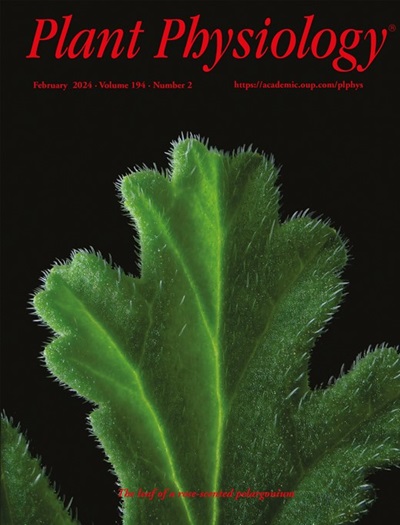Epigenetic insights into the domestication of tetraploid peanut
IF 6.5
1区 生物学
Q1 PLANT SCIENCES
引用次数: 0
Abstract
Polyploidization is a crucial evolutionary mechanism driving species domestication that promotes species formation and adaptation by providing additional genetic information to accelerate the functional differentiation of genes and evolution of new traits. Despite its importance as a key epigenetic modification, the role of DNA methylation in polyploid domestication through the regulation of gene expression remains unclear. Here, we performed whole genome bisulfite sequencing and RNA-seq analysis on the cultivated allotetraploid peanut (Arachis hypogaea L.) and its two ancestral diploids to investigate the epigenetic regulatory mechanisms of DNA methylation in the formation of peanut polyploids and in peanut domestication. Our findings unveiled substantial differences in DNA methylation between peanut subgenomes, particularly in non-CG contexts. Specifically, CHG methylation is a key factor regulating the expression bias of homoeologs and dominant subgenome expression, as well as stress-responsive gene expression. Additionally, CHH methylation plays a role in peanut seed development by regulating genes associated with fatty acid biosynthesis and lipid metabolism. In conclusion, our study provides a vital theoretical foundation and perspective on the epigenetics underlying cultivated peanut domestication, especially related to the formation of agronomic traits.花生四倍体驯化的表观遗传学研究
多倍体化是驱动物种驯化的重要进化机制,它通过提供额外的遗传信息来加速基因的功能分化和新性状的进化,从而促进物种的形成和适应。尽管作为一种重要的表观遗传修饰,DNA甲基化通过调控基因表达在多倍体驯化中的作用尚不清楚。本研究对栽培的异源四倍体花生(arachhis hypogaea L.)及其两个祖先二倍体进行了全基因组亚硫酸盐测序和RNA-seq分析,探讨了花生多倍体形成和花生驯化过程中DNA甲基化的表观遗传调控机制。我们的发现揭示了花生亚基因组之间DNA甲基化的实质性差异,特别是在非cg背景下。具体而言,CHG甲基化是调控同源物和显性亚基因组表达偏倚以及应激反应基因表达的关键因素。此外,CHH甲基化通过调节脂肪酸生物合成和脂质代谢相关基因在花生种子发育中发挥作用。综上所述,本研究为花生驯化的表观遗传学,特别是农艺性状的形成提供了重要的理论基础和研究视角。
本文章由计算机程序翻译,如有差异,请以英文原文为准。
求助全文
约1分钟内获得全文
求助全文
来源期刊

Plant Physiology
生物-植物科学
CiteScore
12.20
自引率
5.40%
发文量
535
审稿时长
2.3 months
期刊介绍:
Plant Physiology® is a distinguished and highly respected journal with a rich history dating back to its establishment in 1926. It stands as a leading international publication in the field of plant biology, covering a comprehensive range of topics from the molecular and structural aspects of plant life to systems biology and ecophysiology. Recognized as the most highly cited journal in plant sciences, Plant Physiology® is a testament to its commitment to excellence and the dissemination of groundbreaking research.
As the official publication of the American Society of Plant Biologists, Plant Physiology® upholds rigorous peer-review standards, ensuring that the scientific community receives the highest quality research. The journal releases 12 issues annually, providing a steady stream of new findings and insights to its readership.
 求助内容:
求助内容: 应助结果提醒方式:
应助结果提醒方式:


